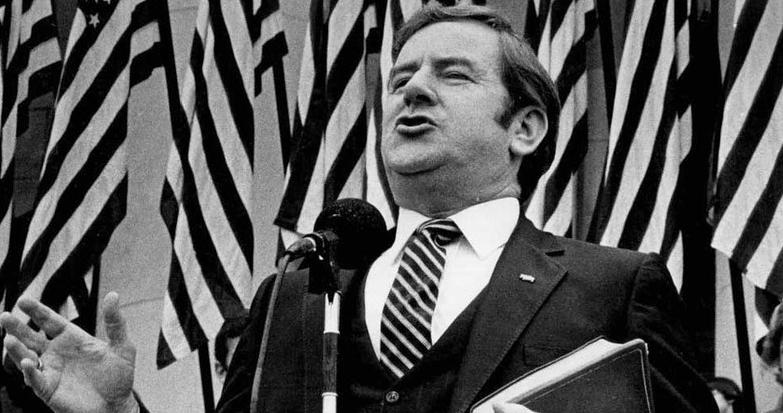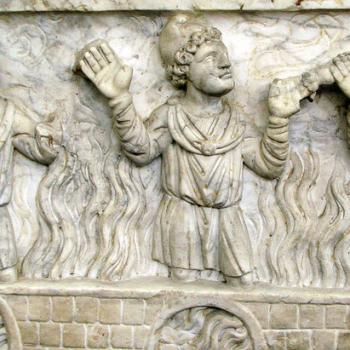
American Politics and Christianity
Christian Nationalism is not a novelty of the last 6 years. Evangelicalism witnessed a thrust onto the political scene in the late ’70s and early ’80s with the rise of the religious right. Jerry Falwell’s Moral Majority campaign helped cement the idea that evangelicals were too long on the sideline. According to the religious right, the nation was on a collision course to destruction. Affirmative action seemed a threat because it was the gateway to socialism which in the minds of many was a threat to the American way of life as a capitalistic free market. Jimmy Carter, who in 1976 publicly declared he was born again to the delight of many in the evangelical world.
However, those who once hailed Carter as the evangelical exemplar soon turned on him. First, he began to lose support from the general public due to steep inflation, American hostages in Iran, and an energy crisis. Not many years earlier, the Internal Revenue Service removed tax exemptions from private schools found guilty of racial discrimination – namely the fundamentalist Bob Jones College. Frustrated evangelicals found their scapegoat in Carter and quickly turned on him. Carter, who was regarded as weak on matters of foreign policy and hesitant in demonstrating boldness against Soviet aggression, did not allay the fears of many evangelicals. They felt the moral decay of the late ’70s further politically placed them on the sidelines.
Ronald Reagan won the 1980 election in a landslide with an overwhelming majority of the evangelical vote. Reagan capitalized on the relatively recent Roe vs. Wade ruling by speaking against abortion. Reagan would be the champion to ride in a white horse and save evangelicalism from the sidelines, from exile. Does all of this sound familiar?
God’s People are People of Exile
In Christ, there is freedom for the church to live out its God-given purposes in this world. The Biblical text is consistent in its witness of the church as “not of this world.” After the miracle of Jesus feeding the five thousand, the people saw an extraordinary power. They quickly moved to make him king by force. However, according to John’s gospel, Jesus retreated to a mountain by himself. Jesus’ plan was not to rule as king but to die on a cross.
Let’s Examine Jeremiah
According to Jeremiah 27:12-14, Zedekiah, the puppet king of Judea, incited a riot against Babylonian rule even after Nebuchadnezzar placed him on the throne over Judea. Service to a foreign entity, especially one that removed a people from their homeland, seemed abhorrent.
I gave the same message to Zedekiah king of Judah. I said, “Bow your neck under the yoke of the king of Babylon; serve him and his people, and you will live. Why will you and your people die by the sword, famine and plague with which the Lord has threatened any nation that will not serve the king of Babylon? Do not listen to the words of the prophets who say to you, ‘You will not serve the king of Babylon,’ for they are prophesying lies to you (Jer 27:12-14, NIV).
The message is clear. We will not serve. The advice to Zedekiah is just as relevant today as it was then. God’s people live in a fallen world with fallen leaders. Yet, many Christians feel oppressed when homeschooling is challenged or when they hear of a stolen election.
Christian Nationalism and Power Politics
Christian nationalism seeks to conflate Christianity with patriotism and even impose the rule of law formed primarily by cultural identity and allegiance to a Christian group. In their book, “Taking America Back for God: Christian Nationalism in the United States,” Samuel L Perry and Andrew L Whitehead defines Christian nationalism as “an ideology that idealizes and advocates a fusion of Christianity with American civic belonging and participation.” Perry and Whitehead qualify Christian in their definition as representing more of an ethnocultural and political identity that denotes a specific constellation of religious affiliation, cultural values, race and nationality.
Were Donald Trump to run again in 2024, one suggested slogan would be “Take America Back.” Given Trump’s significant evangelical support, it makes sense many Christians would go to great lengths in the name of God to rebel against democratic rulership. This insurrection is what King Zedekiah tried to pull off in Judea. In the early ’80s, a clear sign of conflation between Christianity and nationalism appeared when Jerry Falwell famously announced, “We (the clergy) have a threefold responsibility to people: get them saved, get them baptized and get them registered to vote.”
Since the days of Jeremiah, God’s people have lived in exile. Cyrus, the Persian king, allowed the Jews to return to their homeland, but unlike Trump, He did not play bully politics or marginalize the weak and outcast. Israel’s collective hope in a powerful leader to overthrow Rome came in a man who would ride in Jerusalem on a donkey only to die a humiliating death on a cross. Jesus understood power dynamics and his follower’s desire to overthrow a tyrannical government. Jesus’ response to James and John, who asked for places of power in the kingdom, reveals much of the fickleness and shallowness of the church today. To desire power and authority should not be the way of the church. Instead, Jesus cautioned his hasty followers that they would follow Him in death. Servanthood would redefine greatness, and giving up one’s life would indicate that greatness.
The Way Up is Down
The church of the New Testament endured suffering, persecution, and exile. There were very few, if any, Christians after the destruction of the Temple in 70 AD shouting “Make Judea Great Again.” There was also no churchwide campaign to build up weapons for personal protection. Instead, the church grew leaps and bounds while living in exile in a nation often hostile to Christianity.
The Kingdom of God is not external but internal, marked by hope, patience and love. We are not called to become a political force to turn the nation around but a witness in the places we dwell as we flourish where we are planted and do good for those around us, knowing that the position of victory lies at the foot of the cross. We are to seek the city’s welfare, knowing God is working all things new.












